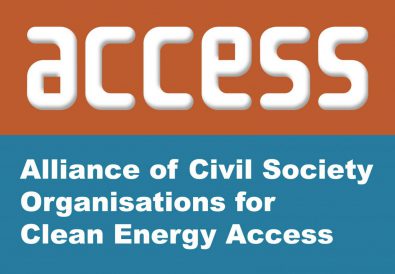ACCESS calls for prioritisation of energy access in delivering the Paris Agreement. Support is needed for research, the strengthening of national enabling environments and inclusive national energy planning.
Marrakech, November 8, 2016 – A year on from the Paris Agreement and the adoption of the Sustainable Development Goals (SDGs), are we moving down the right track to deliver sustainable and efficient energy systems to prevent dangerous climate change and pull billions of people out of energy poverty? ACCESS calls for upscaling and prioritizing energy access, research, support to strengthen their national enabling environments and support for inclusive national energy planning.
Getting energy to those who need it most
SDG7 on ensuring affordable, reliable, sustainable and modern energy for all by 2030 recognises the interlinked challenges of tackling climate change, which hits the poorest hardest, and ending energy poverty. Access to energy is crucial for building climate resilient development, including sustainable livelihoods and job creation, health, education and women’s empowerment. Around 3 billion people currently lack clean and safe energy for household cooking, and over 1 billion lack access to modern electricity.
As a coalition of national and international NGOs, ACCESS believes that civil society has a vital role to play in delivering SDG7. As trusted partners of poor communities, civil society organisations can raise community awareness of energy products and services and enabling environment issues, and work to ensure services are appropriate to meet community development needs in different contexts – including tackling the gendered impacts of poverty.
To end energy poverty, financing and other support must be fit for purpose. The biggest challenge is not generating much greater amounts of energy; it is getting it to those who need it most.
Solutions: Stand-alone units, mini-grids, renewables and safe cooking
An estimated 84% of electricity-poor households and communities live in rural areas, far from the grid. For these households, distributed stand-alone and mini-grid solutions powered by renewables such as wind and solar PV can be deployed much more quickly and are the most viable and affordable option for providing power to most new households. The International Energy Agency (IEA) estimates that two thirds of the investment needed to give universal energy access should go to such distributed solutions, around US$23 billion per year.
The most prevalent and harmful form of energy poverty is lack of clean and safe cooking. Indoor air pollution is the fourth largest cause of mortality globally, more than unsafe water, HIV/AIDS or malaria – and it impacts women and children most. Rapid scale up of access to cleaner fuels and efficient cook-stoves is needed to meet this public health crisis in developing countries.
Rethinking tariffs and investing in upfront costs
For energy poor communities who live close to the central grid, connection is prevented by political, technical and cost barriers. Building new power generation capacity will not overcome these barriers. What is needed is investment in the upfront costs of new connections, and rationalising tariffs to reflect the true costs of supplying power, as well as more inclusive national energy planning processes.
Public finance has a huge role to play in supporting SDG7. Yet while donors are spending billions on support for energy in developing countries, only a small proportion goes to access, with most of this going to power generation, and only a tiny amount going to distributed solutions needed by the vast majority of energy poor people. The multilateral development banks and World Bank put less than 2% of their total energy support into distributed solutions.
ACCESS calls for the following to ensure that we are on the right track to delivery SDG7 by 2030:
- All development partners to scale up and prioritise support for energy access, and in particular for distributed electricity and clean cooking solutions. This includes more appropriate financing instruments and a balance of loan and grant funding to support early stage and small-scale decentralised energy projects.
- More research on the respective roles of public and private financing and the different financing approaches for delivering energy to different groups of poor end-users rather than a ‘one size fits all’ approach.
- More support for developing countries to strengthen their national enabling environments to incentivise investment in distributed solutions, and build thehuman and institutional capacity required to deliver SDG7 at the national level.
- More support for inclusive national energy planning processes and for the participation of energy poor communities in designing and delivering energy services so they meet their real development needs.
Download the original document here.







